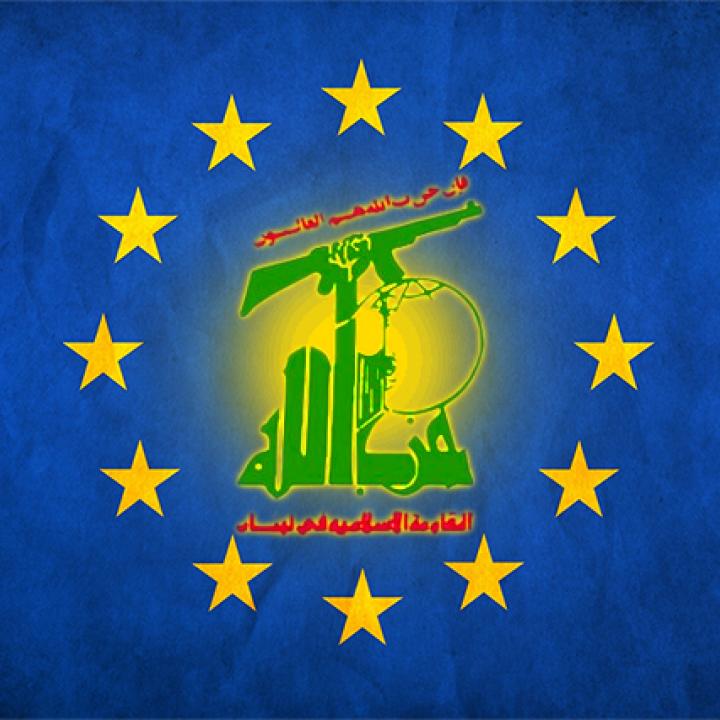
- Policy Analysis
- Articles & Op-Eds
Europe Has Not Faced Up to the Threat of Hizbollah

Britain's recent decision to designate the entire group as a terrorist entity was a step in the right direction, but now the EU needs to follow suit.
Iran’s primary terrorist proxy group, Lebanese Hizbollah, has been deploying operatives to Europe for many years. In July 2013, after the group was blamed for the 2012 bombing of a tour bus in Bulgaria, the European Union finally made its move.
The EU designated Hizbollah’s military and terrorist wings, copying a model adopted by the UK. But, critically, it did not designate the entire organisation. European officials at the time described the blacklisting as a shot across the bow and a warning to Hizbollah. “This is a signal to terrorist organisations,” the German foreign minister said. “If you attack one of our European countries, you get an answer from all of them.”
Yet today, one thing is abundantly clear—Hizbollah has not given up its activities in Europe. Hizbollah’s terrorist wing is continuing to carry out a wide range of financial and logistical support operations within Europe. That includes fundraising through drug trafficking and money laundering, running charity front organisations and procuring weapons and chemicals to make explosives. The group is also engaged in terrorism, dispatching operatives with European citizenship to carry out plots abroad or even within Europe itself.
Of the many cases of Hizbollah criminal activity in Europe, two stand out in particular. In October 2015, Hizbollah criminal facilitators were arrested in coordinated operations in the US and France. Iman Kobeissi was arrested in Atlanta and Joseph Asmar in Paris on charges of conspiring to launder drug money and arms trafficking.
Drug Enforcement Administration agents penetrated their network. French authorities carried out close surveillance, mapping out Hizbollah’s extensive criminal reach in Europe.
Among other things, the network laundered money in the UK, held meetings in Bulgaria, bragged of criminal associates in Cyprus and Hungary, trafficked narcotics through Belgium, held accounts in France, and noted the benefits of getting operatives Italian passports.
The second was exposed four months later. A massive international investigation revealed that Hizbollah was running a dedicated entity specialising in drug trafficking and money laundering across Europe and beyond. The plan was to raise money for Hizbollah’s terrorist operations and its military deployment in Syria.
“Operation Cedar” involved several US law enforcement agencies as well as Europol, Eurojust, and authorities in France, Germany, Italy, and Belgium. Fifteen people were arrested in raids across Europe, and several were ultimately convicted in France in trials that explicitly linked their activities to Hizbollah. Most disturbing are the Hizbollah terror plots in Europe that have been disrupted.
Hizbollah recruitment of European operatives is also on the rise. French and Swedish citizens were involved in the group’s terrorist plots in Bulgaria, Cyprus, and Thailand. Swedish citizens were involved in other plots in Cyprus and Thailand. A UK citizen tied to Hizbollah has been arrested in South America.
Why does Hizbollah continue to operate in Europe? Because it can.
The UK decision to expand its designation of Hizbollah to include the entire organisation earlier this year is a step in the right direction. The EU would be wise to follow suit.
Matthew Levitt is the Fromer-Wexler Fellow and director of the Reinhard Program on Counterterrorism and Intelligence at The Washington Institute.
Telegraph



